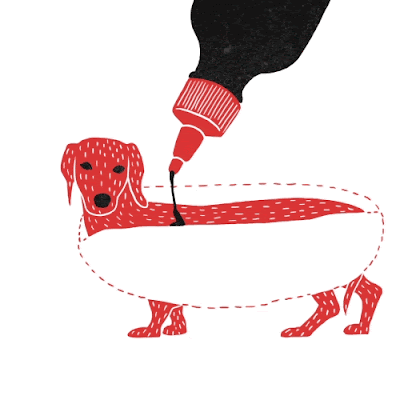From NPR! 貴森森的法拉利等級賽鴿只能看圖片欣賞,一隻要價超過千萬台幣,價格更勝超跑......
 |
| 叫我第一名!冠軍賽鴿一之台幣上看千萬。 |
中國的崛起,改變了全球交易市場的遊戲規則。賽鴿在中國非常流行,一隻好的鴿子(血統純正又得過獎的),價格跟一台超跑差不多。這幾年中國人炒熱了賽鴿市場的行情,讓老外望鴿興嘆。因為現在即便湊得出錢,大概也一鴿難求,因為好的賽鴿早被中國買家給標走啦。這篇文章非常有趣,學英文也了解國際時事,今天就來聽這一篇報導吧!
The Price of A Swift
Pigeon: Try $328,000 (這可是美金喲)
by Louisa Lim
It's
called the China
Effect中國效應 - massive demand大量的需求 in China pushing up prices將價格炒高/推高 for commodities from Australian iron ore澳洲鐵礦(可用來煉生鐵或鋼) to
Brazilian soybeans黃豆. Well, now it's hit a new sector區域. As
NPR's Louisa Lim reports, Chinese buyers are sending prices of racing pigeons賽鴿 sky high.
LOUISA
LIM, BYLINE: To the average observer, they look like ordinary pigeons
caged into a balcony in a high rise高樓 Beijing
apartment, but make
no mistake別搞錯. These cooi咕咕叫(鴿子聲) birds,
according to breeder繁殖者 Yang Shibo, are more like top of the line頂級的 sports
cars.
YANG
SHIBO: (Through translator) These are the Ferraris of the bird world. They're
the most expensive
and the fastest.
LIM: The
pigeons are
being summoned back被召回 from their afternoon flight.
Pigeons can be
lucrative利潤高, as the prize
money比賽獎金 for races is increasing exponentially非常迅速且高升的(本來的意思是指數,這邊是指高得驚人)in
China. Yang's best bird, a German pigeon, cost more than $1,000
back in 2001.
Its descendants後代 have earned him around $150,000 in
prize money.
Good
pigeons come with family trees族譜 going
back
five generations, like pedigreed純種的 race
horses. Indeed, Yang points out, pigeons are, in many ways, the race horses
of China.
SHIBO:
(Through translator) Chinese law allows pigeon racing in China. Horse racing is
only allowed in Hong Kong, not in mainland China.
LIM:
Indeed, the highest price ever paid for a pigeon was $328,000, set earlier
this year by a Chinese buyer. Chinese make up half the customers at Belgium's比利時 premier pigeon house, Pipa. That's up from 18 percent six years ago. The influx大量湧入 of Chinese money means the price of an average pigeon
has
doubled in a couple of years.
LUNA LAI:
大陸客競標賽鴿,是為了凸顯身分地位I think the main reason is that they are buying them for their status. You are rich.
You have a super one. I want to buy a super one, too.
LIM:
That's Luna Lai, Pipa's Greater China大中國地區 manager. She admits the market is
overheated市場過熱.
LAI:
Somehow, the market is really very hot - too hot - but there's still a lot of
Chinese rich buyers and they still want to buy. People will say it's like an
economy bubble泡沫, but I think unless China's economy goes
downhill經濟呈現衰退 - otherwise, I don't think
it's a pigeon bubble yet.(說話者認為,只要中國的經濟持續看好,賽鴿價格的炒作就會持續,這個泡泡還不會破,有了yet是現在不會,之後會不會就不曉得了).
LIM:
Buyers like 40 year old entrepreneur Xing Wei go to Europe every year to find
top flight world
class世界頂級的 pigeons at astronomical prices天文數字, which he asked us not to disclose透露. Like so
many other wealthy Chinese, his fortune is, in part, from real estate deals and
Chinese real estate money, he says, is driving the pigeon market炒作市場(價格).
WEI:
(Through translator) The price of birds imported from Europe to China rises and
falls along with the Chinese real estate market. It follows the same trend
lines呈現一致的趨勢線(就是房市價格居高不下,賽鴿的價格也會跟著攀高,兩者成正比).
LIM: Pigeon fanciers愛鴿者 flock to蜂擁而至 his loft(此字原來的意思是閣樓,此指育鴿者的養鴿場) in Tangshan, about 100
miles from Beijing. Today, one man has come 700 miles to buy a pigeon
for his boss. A single squab乳鴿(小鴿子), or baby
pigeon, bred from Xing Wei's best bird, a Belgian champion racer called Ike,
costs a mind-boggling令人大感訝異的 $15,000.
Xing
Wei's pigeons live in coops籠子/欄舍 on top of his company headquarters總部(此字多為複數形態). He has
three full time pigeon
trainers鴿子訓練師. Xing
Wei's bought 2,000 birds from Europe. He's so determined to raise a flock of一群/一窩 super pigeons, sometimes his trainers kill
inferior birds
in an act of pigeon eugenics為了優生學(會殺掉較弱的鴿子).
Xing Wei
is scathing
about批評 China's
pigeon races, saying most of the lofts that organize them are dishonest.
WEI:
(Through translator) It's not corruption腐敗. It's just the market is chaotic混亂. The
majority of the races, 90 percent, are not fair. There are lots of things these
lofts do, like letting out a bird by itself instead of together with the other
birds. Some people use steroids類固醇.
LIM: Xing
Wei's love for pigeons was nurtured by培養/滋養(這裡的意思是因緣際會有個典故) a personal tragedy. He was given his first pigeon
at age five
after a massive
earthquake大地震 killed 240,000 people in
his hometown, Tangshan唐山.
WEI:
(Through translator) There was devastation everywhere. All the houses were flattened所有的房舍都被夷為平地. From
then on, I thirsted
for and valued
life渴望且珍惜生命. An elderly neighbor gave me
a pigeon. It
felt like it was destiny命中注定.
LIM: That
year was the first that pigeon racing was allowed after the Cultural Revolution文化大革命. It had
been forbidden for its capitalist tendencies資本主義的傾向. In less
than four
decades, Chinese buyers have come from nowhere. Now, they set the price
for the world's best pigeons and the anti-China backlash反對/反感 has begun with European buyers complaining
about being
priced out of the market因為中國買主高價炒作,出價遠高於歐洲買主,導致歐洲人買不到好鴿子price out就是出的價比過對手. With racing pigeons, as with so many other commodities商品, China's hold on the market主導市場 is
beginning to unnerve焦躁/憂慮 the outside world.
Louisa
Lim, NPR News, Beijing.










留言
張貼留言